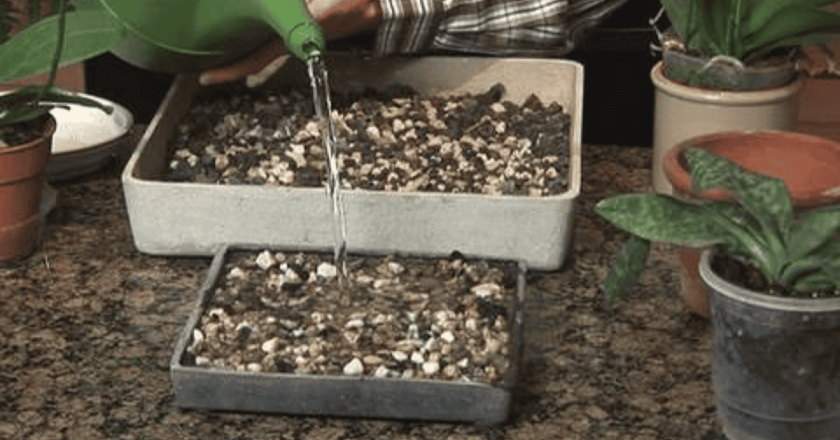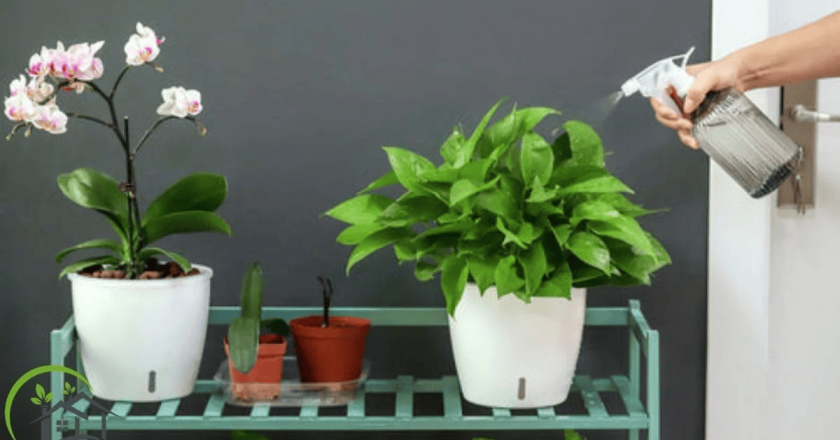We all look forward to spending time in the garden during warmer months—but so do mosquitoes. These uninvited guests and gnats, flies, and other pests can quickly ruin the peace of a perfectly planned outdoor evening.
So, what’s the solution? Chemical repellents? Bug zappers? Sure, they work. But if you’re looking for a more natural, sustainable, and frankly beautiful approach, your garden might already hold the answer.
This guide explores ten powerful outdoor plants that naturally repel mosquitoes, deter garden pests, and double as lovely landscape elements. These mosquito repellent plants don’t just help you avoid itchy bites—they bring balance, biodiversity, and health back to your outdoor space.
🌼 1. Marigold (Tagetes)

Bright, sunny, and surprisingly tough, marigolds are one of the most effective flowers for pest control.
Why It Works:
Marigolds emit pyrethrum, a compound often used in mosquito spray formulas. The scent is known to deter mosquitoes, whiteflies, aphids, and even squash bugs.
Where to Plant:
-
Along the borders of vegetable beds
-
Near patios or doorways
-
Around crops that are pest-prone
Bonus: They’re low-maintenance, fast-growing, and available almost everywhere—including local nurseries and even Brooklyn Botanic Garden seasonal sales.
🌿 2. Basil (Ocimum basilicum)

We often think of basil as a kitchen herb, but it’s also a natural mosquito repellent powerhouse.
Why It Works:
The oils in basil’s leaves release compounds like estragole and citral that deter mosquitoes, flies, and gnats. Even better? Crushing the leaves releases a more pungent aroma that actively repels insects.
Where to Plant:
-
In pots on outdoor tables
-
Near food prep zones or BBQ stations
-
Along walkways and raised beds
Plus, basil has culinary benefits. You’ll never need to wonder how to get rid of gnats in plants again—basil handles both beauty and bugs.
🌿 3. Citronella Plant (Pelargonium citrosum)

While the term citronella often refers to oils, the actual citronella plant is a lemon-scented geranium that’s remarkably potent.
Why It Works:
It releases a sharp citrus aroma that mosquitoes despise. Though less effective than extracted oils, its live foliage still repels many biting bugs.
Where to Plant:
-
In large containers (great near decks)
-
Along walkways
-
Mixed with other mosquito repellent plants
Want stronger results? Crush the leaves or add them to a DIY natural bug repellent mix.
💜 4. Lavender (Lavandula angustifolia)

The lavender plant offers more than a calming scent—it also acts as a barrier against mosquitoes, spiders, and flies.
Why It Works:
Lavender contains linalool, a compound proven to repel many insect species. It also functions as a natural ant killer and can deter moths.
Where to Plant:
-
Borders and walkways
-
Window boxes and entryways
-
Garden beds with full sun
Pro tip: Lavender dried bundles also serve as natural spider repellent indoors. And yes—lavender is safe for dogs, so it’s pet-friendly too.
🌱 5. Mint Plant (Mentha spp.)

Mint plants are fast-spreading, aromatic, and incredibly effective at keeping mosquitoes and ants at bay.
Why It Works:
The menthol aroma masks the carbon dioxide and lactic acid humans emit, signals that attract mosquitoes. It also works against flies, spiders, and ticks.
Where to Plant:
-
In containers to prevent overgrowth
-
Near gathering spaces
-
Inside raised herb gardens
Use leaves to make a quick peppermint spray that works wonders on mosquito bites, or as a fly repellent indoors.
🍋 6. Lemongrass (Cymbopogon citratus)

Not to be confused with citronella-scented plants, lemongrass is an actual source of citronella oil and one of the best mosquito deterrents.
Why It Works:
Its high citronellal content is a strong mosquito killer—mainly when grown in large clumps.
Where to Plant:
-
Around patio perimeters
-
In large outdoor containers
-
As a backdrop for tropical-themed beds
You’ll also find lemongrass plant options at shops like Brooklyn Botanical Garden or PlantShed for warm-season landscaping.
🌿 7. Rosemary (Rosmarinus officinalis)

Not only is rosemary a culinary staple, but it’s also a natural line of defense against mosquitoes, flies, and gnats.
Why It Works:
The woody scent of rosemary deters biting insects and masks the human scents that attract them.
Where to Plant:
-
Raised planters or kitchen gardens
-
Along gravel walkways
-
Near sitting areas
Rosemary is also one of the best herbs for container gardening, ideal if you’re seeking a mosquito repellent for yard without much space.
🧄 8. Allium (Allium giganteum and others)

Members of the onion family, allium flowers are bold, beautiful, and fiercely protective of your garden.
Why It Works:
Their potent sulfur compounds repel mosquitoes, aphids, mites, and even deer.
Where to Plant:
-
Interspersed in vegetable beds
-
Bordering flower gardens
-
In bulb groupings for seasonal bursts
Allium bulbs also resist rodents—so they’re doing more than just warding off bugs.
🐱 9. Catnip (Nepeta cataria)

Fun fact: Catnip is up to 10 times more effective than DEET at repelling mosquitoes.
Why It Works:
It contains nepetalactone, a powerful mosquito deterrent that bugs hate.
Where to Plant:
-
At the corners of garden beds
-
In containers (to control the spread)
-
Mixed into herb gardens
Warning: If you’ve got cats, expect visitors. Catnip is both a bug repellent and a feline favorite.
🌺 10. Geranium (Pelargonium)

Geraniums, especially lemon-scented varieties, are visually stunning and functionally powerful.
Why It Works:
Geraniums emit compounds that repel mosquitoes, spiders, and even ticks. Many hybrids contain natural citronella properties.
Where to Plant:
-
Hanging baskets
-
Border beds
-
Front porch containers
Pair with bee balm to encourage pollinators while keeping pests away.
🌿 Additional Pest Deterrent Tips: Layering Nature’s Defenses
Creating a pest-resistant garden doesn’t rely on a single plant or quick fix. It’s about thoughtful design—an ecosystem that subtly but effectively sends the message that pests are not welcome here.
That’s where companion planting comes in. By grouping specific herbs, flowers, and foliage, you create a multisensory environment that confuses, deters, or repels unwanted bugs. This method doesn’t just fight mosquitoes—it addresses a broad spectrum of nuisances, from ants and gnats to squash bugs and spider mites.
🌸 Combine and Conquer: Smart Pairings That Keep Pests at Bay
Here are a few strategic pairings you can plant today to maximize natural repellency:
💜 Lavender + Mint near Seating Areas
This duo is perfect for places where people gather. The lavender plant brings a soft floral aroma, while the mint plant releases sharp menthol tones. Together, they confuse mosquitoes’ scent receptors and reduce their attraction to carbon dioxide and body heat.
-
Ideal for: Patio containers, porch railings, or garden benches
-
Bonus: Both are excellent for DIY sprays—lavender soothes bites, mint cools and refreshes
🌼 Marigold + Basil around Veggie Patches
Basil emits mosquito- and fly-repelling oils, while marigolds repel aphids, whiteflies, and even some soil nematodes. Plus, they add a pop of color to utilitarian garden beds.
-
Ideal for: Edging raised beds or planting between tomatoes and peppers
-
Bonus: Harvest basil for cooking, while marigolds protect root systems
This combination doesn’t just deter flying pests—it also supports soil health and visual appeal.
🍋 Lemongrass + Citronella Plant along Patios and Walkways
If your goal is a mosquito-free lounging space, this combo delivers. The tall, striking blades of lemongrass double as architectural elements, while citronella plants fill gaps with scented foliage.
-
Ideal for: Borders around decks, steps, or gravel paths
-
Bonus: Crush a few leaves during outdoor gatherings to intensify the repellent scent
🌬️ Environmental Enhancements: Beyond the Plants
Plants do a lot of work, but the environment you build around them plays a significant role too. Here are a few supporting strategies to enhance your pest-free zone:
🪨 Add Gravel or Mulch Barriers
Not just aesthetic—gravel mulch disrupts the moist, organic environments many bugs thrive in. It also helps drainage and prevents insect eggs from surviving near plant bases.
-
Use around: Herb beds, patio perimeters, and walkways
-
Best types: Pea gravel, river rock, or cedar mulch for additional pest-repelling oils
💧 Reduce Standing Water (and Mosquito Breeding Grounds)
Mosquitoes only need a tablespoon of water to breed. That’s it. So any container, birdbath, clogged gutter, or plant saucer can turn into a nursery for dozens of pests.
-
What to do:
-
Dump water from unused pots weekly
-
Add mosquito dunks (natural larvicides) to ponds
-
Keep gutters clear and flowing
-
Choose fast-draining pots
-
🌬️ Encourage Airflow and Sunlight
Still air and damp shade are perfect for gnats, mosquitoes, and fungus gnats that invade houseplants. Strategic pruning and spacing increase air circulation, reducing humidity and keeping pests away.
-
Thin dense shrubs
-
Space pots and planters
-
Prune the lower leaves of larger plants
🐦 Welcome, Natural Predators
Sometimes, the best repellent is another living thing. Invite birds, beneficial insects, and even frogs into your garden with:
-
Bird feeders and baths
-
Bee balm and wildflowers to attract pollinators
-
Small ground-level water bowls for toads
Think of it as building a balanced garden community where nature handles the pest control for you.
🔁 Rotate and Refresh
Don’t plant the same crops or herbs in the same spot every year. Pest eggs can overwinter in the soil and wait for their favorite plant to return. Rotating locations and mixing new repellent plants can throw them off their cycle.
-
Try rotating basil and rosemary beds
-
Alternate rows of marigolds with allium bulbs
-
Replace tired potted plants each season with strong-scented defenders
🌿 Tip: The Power of Diversity
One plant might repel one kind of insect, but diverse plantings—a mix of herbs, flowers, and structural foliage—create a layered effect. Each scent, texture, and shape adds confusion for pests and resilience for your garden.
Whether you’re deterring mosquitoes, spiders, gnats, or ants, the key is integration. No single plant will solve everything. But together? They’re a botanical dream team.
🛠️ DIY Repellent Recipes from Garden Plants
✳️ Natural Mosquito Repellent Spray
Ingredients:
-
1 cup distilled water
-
10 drops citronella oil
-
5 drops of lavender oil
-
5 drops peppermint oil
Mix and pour into a spray bottle. Mist around doors, shoes, or clothing.
✳️ Peppermint Ant Deterrent
Soak crushed mint leaves in water overnight, then strain and spray near cracks and garden beds.
Also Read:
- Garden Calendar 2025: Best Times to Plant Flowers & Veggies
- 23 Blooming Indoor Plants to Brighten Your Home This Winter
- Care Tips for Christmas Cactus That Blooms Every Year
- How to Care for a Money Tree, the Luckiest Indoor Plant
- 33 Best Plants for Your Bathroom to Add a Spa-Like Feel
- Snake Plant Care Guide | Sansevieria Tips for Indoors
- Peace Lily Care Guide | Thriving Spathiphyllum Indoors
🧠 Frequently Asked Questions
Q1: What plants repel mosquitoes naturally?
Plants repel mosquitoes with strong natural oils and scents, such as lavender, mint, basil, citronella, and lemongrass.
Q2: Are mosquito repellent plants effective?
Yes—but they work best when combined. A single plant may not clear your yard, but a strategic layout helps.
Q3: What’s better: citronella candles or citronella plants?
The live citronella plant is more eco-friendly and adds beauty, but candles provide more concentrated protection in the short term.
Q4: Can I grow these plants in containers?
Absolutely. Some—like mint and catnip—are better contained to prevent spread.
Q5: Where can I buy mosquito repellent plants near me?
Check local nurseries, botanical gardens like Brooklyn Botanic Garden, or trusted plant retailers like PlantShed.
🌱 Final Thoughts: Let Nature Handle the Repellent
You don’t have to fight nature to enjoy your backyard—you can invite it to do the work for you. With the proper selection of plants that repel mosquitoes, your garden becomes more than just a visual retreat—a functional, organic defense system.
No buzz. No bites. Just peace.
So, the next time you’re wondering how to keep mosquitoes, gnats, ants, or even spiders at bay, remember that sometimes the best answer is to grow the right plant.




